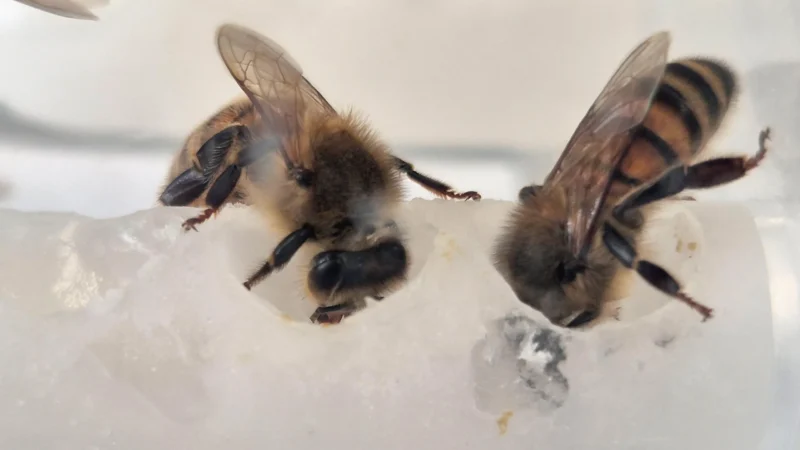Fast Facts
-
Innovative Solution: A study by Oxford University and collaborators engineered a yeast-based food supplement, providing essential sterols to enhance honeybee colony reproduction amid declining nutrient sources.
-
Nutritional Breakthrough: Colonies fed the sterol-enriched diet produced up to 15 times more viable larvae compared to controls, highlighting the critical role of specific plant sterols for bee health.
-
Sustainable Production: Using CRISPR technology, the yeast Yarrowia lipolytica was engineered for scalable production of the key sterols, offering a sustainable alternative to depleting natural pollen sources.
-
Agricultural Impact: This supplement could improve honeybee resilience, benefiting pollination and food security, with potential applications for other pollinators and farmed insects in sustainable agriculture practices.
The Challenge: Addressing a Critical Nutrient Deficiency
Honeybee populations face alarming declines due to climate change and agricultural practices. These factors strip the floral diversity bees need to thrive. Pollen provides vital nutrients, especially specific lipids known as sterols. Unfortunately, beekeepers often resort to artificial pollen substitutes that fall short nutritionally. Such substitutes comprise proteins and sugars but lack the essential sterols bees require for proper development.
Recent research has tackled this issue head-on. Scientists engineered the yeast Yarrowia lipolytica to produce six critical sterols found in natural pollen. In controlled studies, colonies receiving this enriched diet exhibited significant growth. They reared up to 15 times more viable larvae than those on conventional feeds. This development could lead to healthier colonies and potentially reverse declining populations.
Benefits for Agriculture and Biodiversity
The implications extend beyond bee survival. Pollinators like honeybees play a pivotal role in global crop production, influencing over 70% of our food supply. As honeybee numbers dwindle, food security and biodiversity suffer. The engineered supplement not only enhances bee health but may also alleviate pressure on natural pollen resources. This could benefit other pollinators, allowing for a more balanced ecosystem.
Looking ahead, these findings signal a new chapter in sustainable agriculture. Large-scale trials will determine the long-term viability of this feeding strategy. If successful, farmers could access these supplements within two years. Moreover, the technology may pave the way for dietary solutions for other pollinators and farmed insects. Ultimately, this innovative approach offers hope for revitalizing bee populations and securing our food systems.
Expand Your Tech Knowledge
Stay informed on the revolutionary breakthroughs in Quantum Computing research.
Discover archived knowledge and digital history on the Internet Archive.
TechV1

